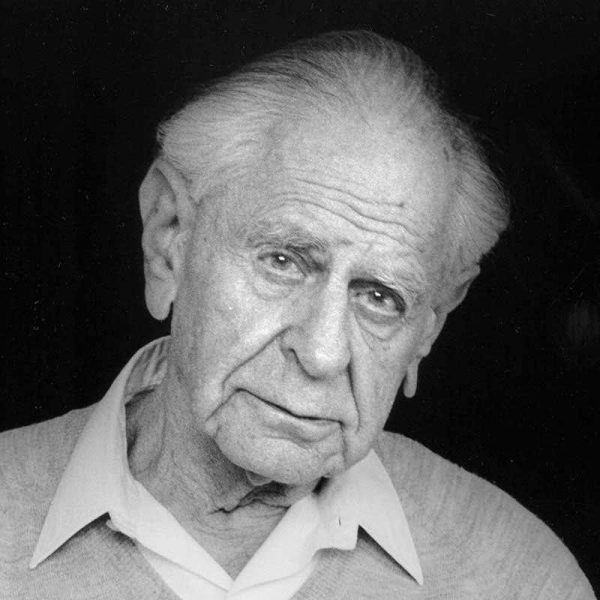
Bruna Frascolla
For better or worse, Mangione's actions remind us of what was evident when the specter of communism was looming over Europe: that the very rich are subject to brute force.
Karl Popper was probably the most influential philosopher of the 20th century: he reigned supreme in science and politics. In philosophy courses, he is often remembered for his epistemology, which aims to provide criteria for differentiating science from pseudoscience - the category in which Marxism was placed. His political contribution, however, dwarfs his scientific work. With The Open Society and Its Enemies, Popper laid the foundations for democracy in the post-war period.
The book was published in 1945, with the support of the liberal aristocrat Friedrich von Hayek. Karl Popper was a poor Austrian New Christian (Lutheran) who managed to escape Hitler with great difficulty and ended up in New Zealand. He was a former Marxist who had become close to some liberals in Vienna. In 1945, therefore, he had a voluminous book that explained why democracy (the "open society") was superior to communism and fascism. In both the epistemological and political spheres, Popper had binary classifications. In epistemology, a theory was either scientific or pseudoscientific. In politics, a society was either open or closed. Democracy would be the open society; the closed society would equally encompass communism, fascism or any other political regime inspired by Hegel or Plato.
Popper's political theory is based on his epistemological vision. For him, it is impossible to prove that a scientific theory is true; it is only possible to prove that it is wrong. Thus, all science is provisional; it is valid as long as no one proves that it is wrong. Popper does not intend for science to discover the truth, but rather to gradually move away from error, with scientific theories gradually being replaced by better ones.
Popper looks at politics as a scientist; and, with his egalitarianism inherited from his Lutheran upbringing, he sees every citizen as a citizen-scientist, just like himself. Society is conceived not as a body in which the common good is freely and arbitrarily decided, but rather as a large laboratory for public policies. Therefore, it is important to keep society always open to change, so that a flawed system can be overthrown and replaced with a better one. In Popper's utopia, a politician would boast not of getting things right (because there is no such thing), but rather of the errors that he had discovered in his own policies.
In this liberal utopia, free speech has a very specific function: to enable the emergence of new scientific and social theories. It is up to citizens to read them and reject them if they are false. The argument is very Millian: false ideas must circulate and their falsity must be exposed, using the same free speech. The opposite of this rational confrontation proposed by Popper is physical confrontation. Thus, free speech cannot be used to incite violence - and the revolutions of the first half of the 20th century were understood as violent. The sexual revolution, although not suggested by Popper, is a legitimate revolution from the Popperian point of view: it does not use force. The communist revolution, on the other hand, is illegitimate because it uses force.
For Popper, the use of violence is the opposite of the use of reason, and, in a democracy, issues should only be decided through rational debate.
This month, a controversy in the United States seems to have touched on a sore point in the post-war Popperian consensus - in which almost anything can be said and almost nothing can be done. The director of a large health plan, Brian Thompson of UnitedHealthcare, was murdered by Luigi Mangione, a well-born and successful young man, who in his succinct manifesto offered the following reasoning:
"A reminder: the US has the #1 most expensive healthcare system in the world, yet we rank roughly #42 in life expectancy. United is the [indecipherable] largest company in the US by market cap, behind only Apple, Google, Walmart. It has grown and grown, but as our life expectancy? No the reality is, these [indecipherable] have simply gotten too powerful, and they continue to abuse our country for immense profit because the American public has allwed them to get away with it. Obviously the problem is more complex, but I do not have space, and frankly I do not pretend to be the most qualified person to lay out the full argument. But many have illuminated the corruption and greed ( e.g.: Rosenthal, Moore), decades ago and the problems simply remain. It is not an issue of awareness at this point, but clearly power games at play. Evidently I am the first to face it with such brutal honesty."
It seems that Brian Thompson was chosen because he had already been criticized in an open letter from the American Hospital Association for planning to deny emergency care. In addition, under Thompson, the company began using artificial intelligence to deny care. This year, this company, along with others that cover Medicare, gained attention from a Senate subcommittee for their denials of care.
If Popper's scheme had worked, the U.S. health care system would have collapsed long ago. The problem that all postwar democratic liberalism has ignored is the unchecked power of money. For better or worse, Mangione's actions remind us of what was evident when the specter of communism was looming over Europe: that the very rich are subject to brute force.